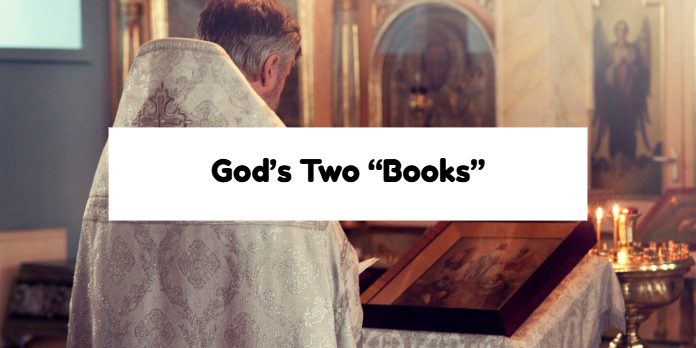Phyllis and I have been talking lately about what we sometimes hear as a reason why people do not attend church. It’s not that they have no interest in spiritual matters, they say. It’s just that they get their spiritual inspiration by “spending time in nature.” Walking in the woods, listening to birds sing, watching a sunset, reflecting along a shoreline—these are for them the ways they get in touch with the divine.
We don’t find these testimonies to be without merit. In fact, it has some attraction for us. A local nature reserve near our home offers Sunday morning Audubon-sponsored bird-watching walks, and we would like to go. Furthermore, given the many church service times we have to choose from at our home congregation, we could do so without simply skipping church. And for us, the bird-watching walk would also be a way of connecting with God in nature.
I recently came across an Emily Dickinson poem that stimulated my thoughts on this subject:
Some keep the Sabbath going to church;
I keep it staying at home,
With a bobolink for a chorister,
And an orchard for a dome.
Some keep the Sabbath in surplice;
I just wear my wings,
And instead of tolling the bell for church,
Our little sexton sings.
God preaches,—a noted clergyman,—
And the sermon is never long;
So instead of getting to heaven at last,
I ’m going all along!
What is theologically and spiritually off-base in this poem is that the poet is treating her times listening to birds sing under the orchard’s “dome” as a legitimate substitute for church worship. Having said that, though, I still like the poem, especially if we take it as showing how time in nature can serve as an important spiritual supplement to corporate worship.
Here we can draw some encouragement from the Reformation era confessions. The Westminster Confession points us in the right direction when it tells us that “the light of nature, and the works of creation and providence… manifest the goodness, wisdom, and power of God.” Unfortunately, it quickly blunts the positive point it is making there when it immediately stipulates that all of this serves mainly “to leave men inexcusable”— since the things that are revealed in nature aren’t “sufficient to give that knowledge of God, and of his will, which is necessary unto salvation.”
The Belgic Confession is more helpful. While it also eventually gets around to the “without excuse” rider, it takes a little more time than the Westminster to get there. “[T]he creation, preservation and government of the universe,” it tells us, “is before our eyes as a most elegant book, wherein all creatures, great and small, are as so many characters leading us to contemplate the invisible things of God, namely His power and divinity.”
Emily Dickinson can be seen as a gifted reader of the “elegant book” that God has provided for folks who spend time in orchards listening to the birds sing. We would all do well to give careful attention to what that “book” is intended to teach us. But we do need the other Book—where the Lord tells us all of those things that are “necessary unto salvation”—including how best to honor, as his redeemed people, the “all creatures, great and small” that are also loved by the One who has saved us.
Phyllis made a good suggestion about how to integrate what goes on in both church services and nature walks. Someone should write a collection of biblically based devotionals, she said, for people who claim to get more out of spending time in orchards than they do in corporate worship. Such devotionals might even bring them back to church, as necessary supplement to their nature walks. A great assignment for someone who is skilled at carefully reading both “books”! Or maybe it has been done?
2 Comments »
-
yes, it’s been done… The Birds, Our Teachers by John R. W. Stott
Comment by Dan Swanson — July 13, 2010 @ 6:09 pm
-
Well – alas – I think, though unintened, you completely misread Emily Dickinson – a comprehensive soul who did not spend a lot of time “sitting in her orchard listening to the birds sing”. She indeed expressed a singular role of her own “keeping the Sabbath by staying at home”. Would that those millions who today do the same had similiar explainations as she for listening to “the noted clergyman”. Miss Dickinson was telling us that she knew that God valued her presence “in His Name” in her Orchard as much as He did forbear the hypocopricy that too often accompanyed those “followers” who went insteead for the “show”. Emily may not have been a model “christian” we envision today but she was a perfect product of the Christianity known in the little corner or her very wide world.
Comment by Edmund E. Jacoutot — September 23, 2010 @ 11:14 pm






























